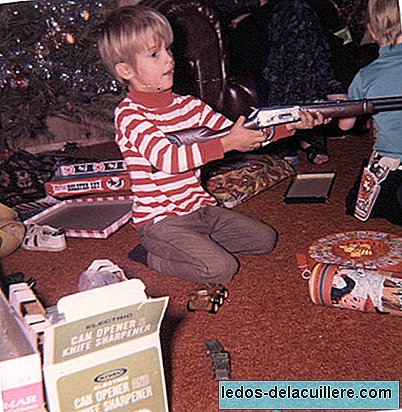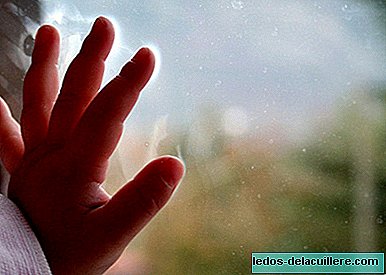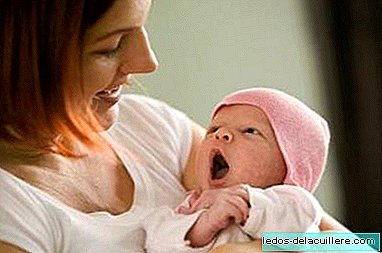
In recent years I have heard many comments about the desirability of Children do not play with warlike elements such as guns or swords.
My three-year-old son, without having taken him to this kind of elements (at least consciously), in the last parties of our town he has chosen in the position, toy weapons (in addition to trucks, animal figures and other things). Should I have refused to buy them? I will expose the information I have collected on this subject, to see what they think. Among the parents there are several types of attitudes that I try to summarize in these three slightly exaggerated options.
- Option A: Weapons are not a toy, I can't buy them for you. It is a fairly extended option. Fathers and mothers who refuse to have a war element inside their house. The hypothesis is that if we protect the child from the idea of violence that accompanies weapons, we will protect his development from disproportionate aggression.
- Option B: We try to generate criteria in children by offering them the freedom to choose a gift, if it is a gun we can stand it. This is a blind step, we would like our son to have something creative or interesting as elements of interest (paintings, animals, a story ...) but we risk him choosing something we don't like.
- Option C: The sheriff of a town in the United States organizes a workshop with 6-year-olds to learn to shoot with guns and automatic weapons. There is a group of parents in that country (fortunately small) who argues that if children learn to use weapons from an early age, they will not use them incorrectly as adults. This is anecdotal, since in Spain there is no free movement of weapons, but it can help us decide.
Option C is the one that catches my attention, not because I agree with it, but because in a country as advanced as the United States, the idea (for a large sector of society) that arms ownership continues It is a constitutional right that increases citizen security (does nobody reflect on gun deaths, many of them related to minors and even children, that occur in that country compared to those in Europe?). In this country, in cinema and television, explicit violence is more accepted than other socially controversial thematic areas (such as sex for example) and citizen insecurity data do not endorse their position as facilitators of adapted behaviors.
Option A seems disproportionate, I think it is reductionist to think that the possession of war toys may involve more violence in children. In addition, I think it is a position that cannot be maintained: until what age can we protect them? How do we control the gifts they are given? Will this position generate unnecessary child-father conflicts?
Option B I think is the least bad, and I put it this way because I can't think of another way of educating than taking certain risks in which there is a possibility that things do not go as we want but that is the only way for our children Grow as people.
In conclusion, I think we should make toys that mimic weapons something normal and avoid pointing them out as special elements, so that they do not remain "fixed" in the child's mind. Violence is something natural and we must overcome the cultural taboo it implies for our culture. Law enforcement, the state security forces and the army are the clearest examples of the use of violence in a structuring way, but they are not the only situations in which our children face aggressiveness. It also exists in courtyards, on the streets or on soccer fields. It is something that scares us and we do not know how to deal with it (who has not heard someone commenting that he prefers his son to be one of those who hit before he is hit?), But eliminating war toys will not Protect our children.












